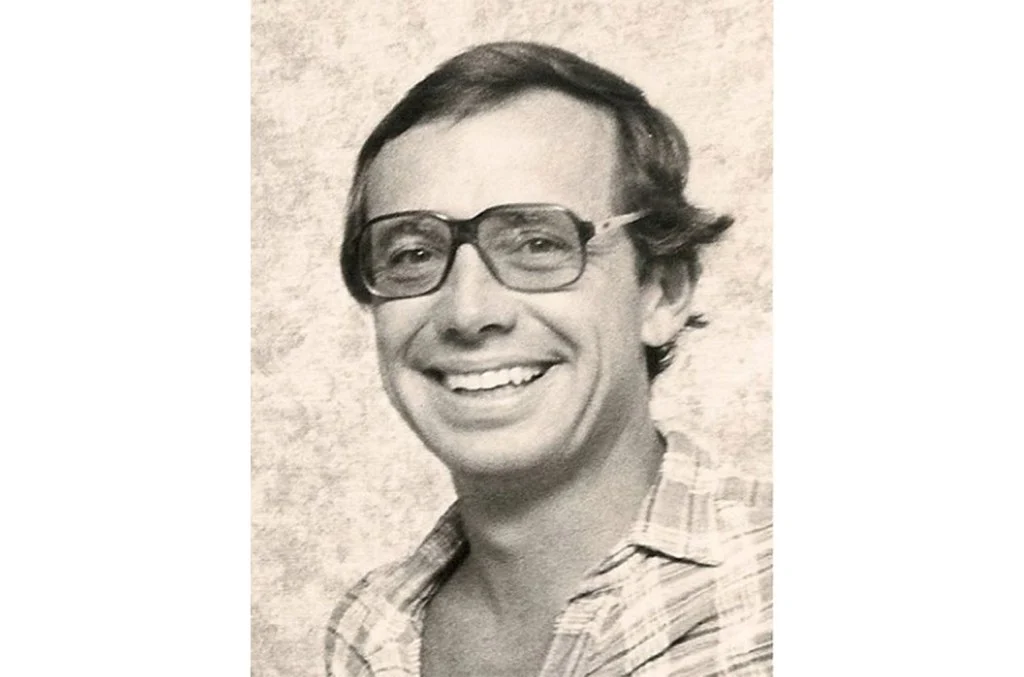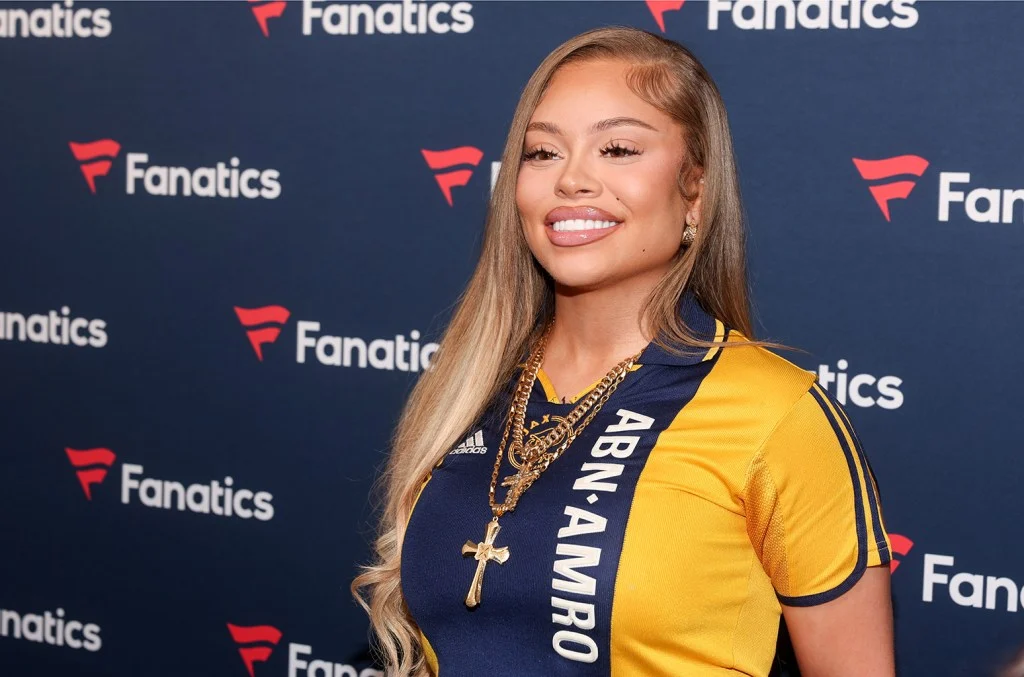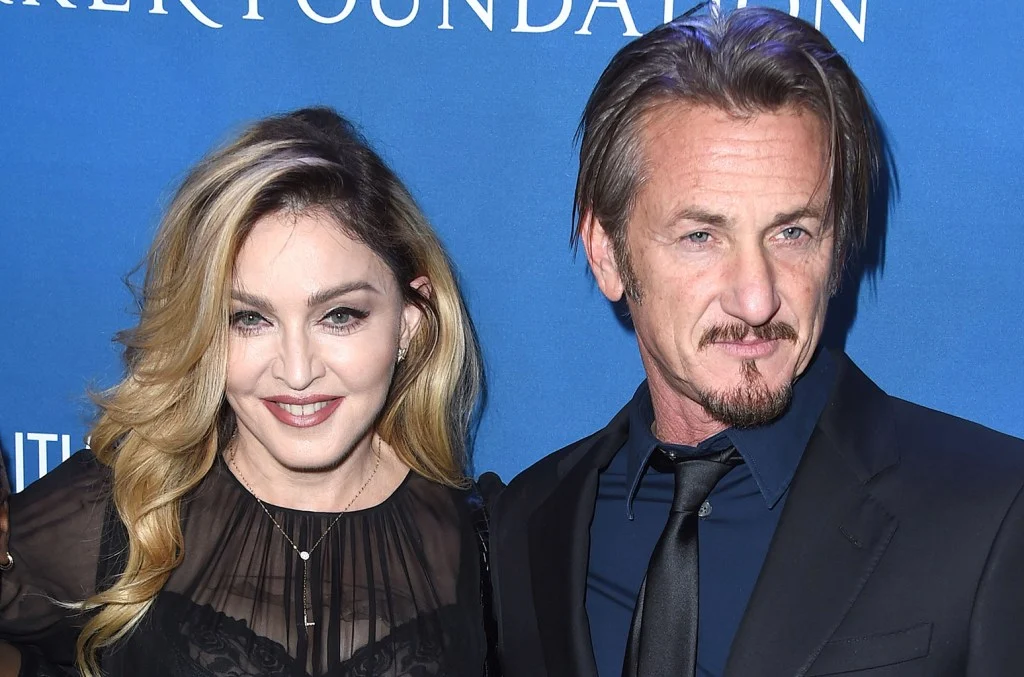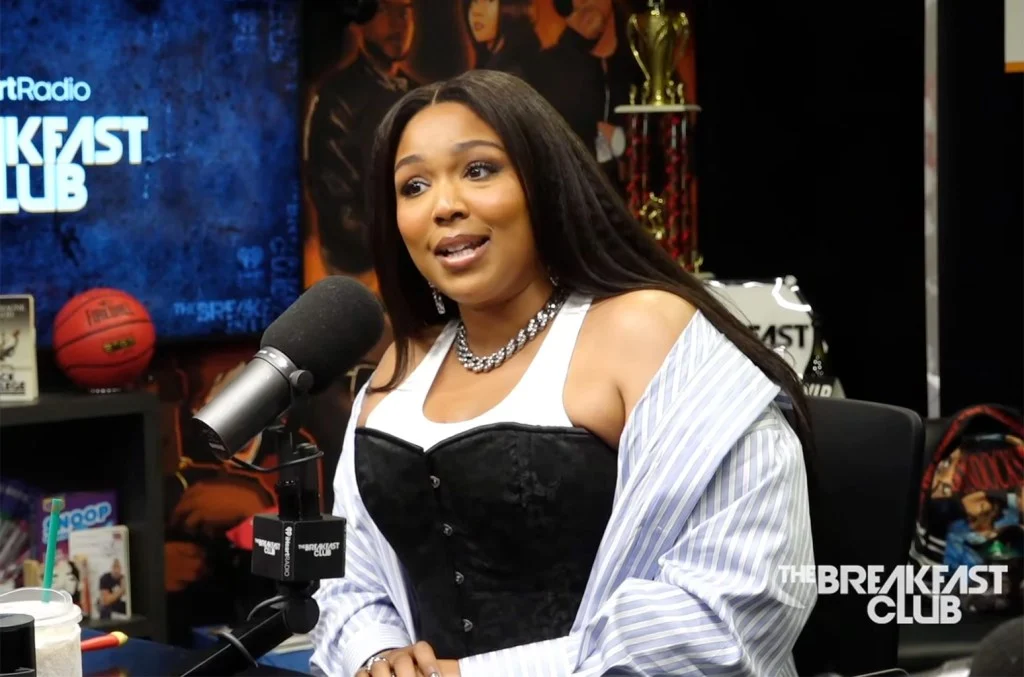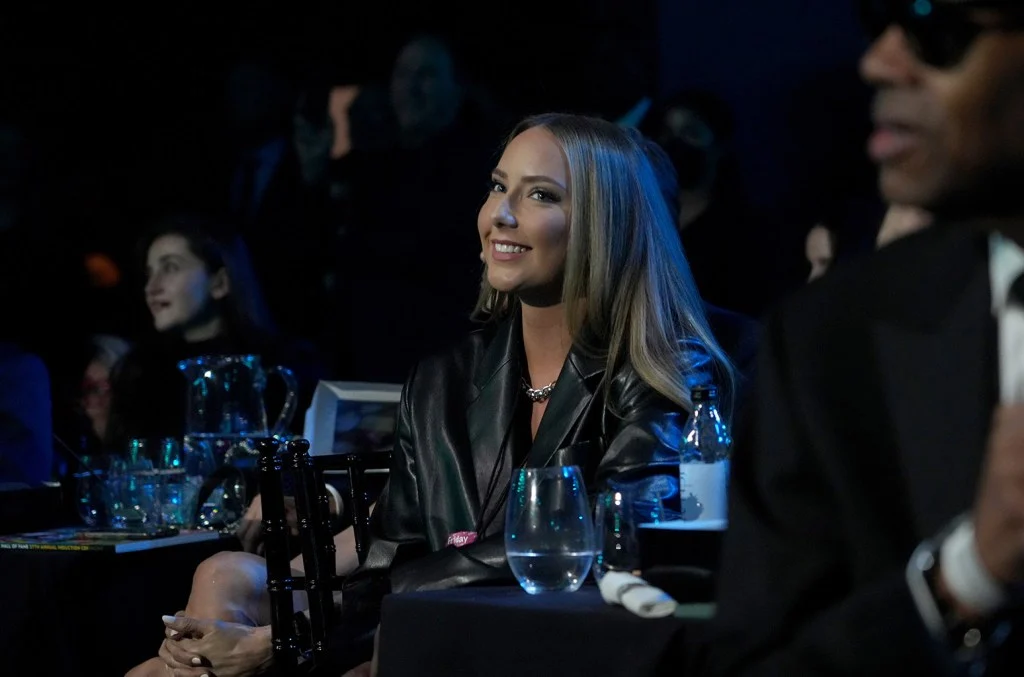Music
Page: 270
Though the likes of Hall & Oates might be heavily associated with the contentious ‘yacht rock‘ genre, Daryl Hall himself has expressed disdain towards the classification.
Explore
Explore
See latest videos, charts and news
See latest videos, charts and news
Used as a way to refer to the soft pop-rock and blue-eyed soul of the ’70s and ’80s, the term ‘yacht rock’ was initially coined by makers of a 2005 mockumentary series of the same name. The series itself was a popular one, lasting from 2005 until 2010 and even resulting in a 2024 HBO ‘Dockumentary‘ that explored the genre in deeper detail.
However, while the likes of Michael McDonald and even John Oates have been receptive to the original show, Hall is singing a far different tune. In the latest episode of the Broken Record podcast, Hall told interviewer Justin Richmond that he’s far from a fan of the concept.
Trending on Billboard
“This is something I don’t understand. First of all, yacht rock was a f–king joke by two jerk-offs in California, and suddenly it became a genre,” he explained. “I don’t even understand it. I never understood it. It’s just R&B with maybe some jazz in there. It’s mellow R&B, smooth R&B. I don’t see what the yacht part is.
“People misjudged us because they couldn’t label us,” he continued. “They always came up with all this kind of crap, soft rock and yacht rock and all this other nonsense. And none of it, none of it really describes anything that I do, really.”
In 2007, Oates reflected on the success of the Yacht Rock series, explaining that it was the “beginning of this whole Hall & Oates resurrection,” and even noting that “a lot of things have happened because of Yacht Rock.”
It’s little surprise that both Hall and Oates have differing views on the matter, given that the pair’s 2024 dissolution was given an air of finality when Hall claimed in March that they would never again perform together. “That ship has gone to the bottom of the ocean,” he explained. “I’ve had a lot of surprises in my life, disappointments, betrayals, so I’m kind of used to it.”
The Hall & Oates dissolution first began back in November 2023 when the pair became embroiled in a legal dispute. Described by Oates as “a very boring business issue,” the crux of the issue began when Hall filed suit against his former partner over Oates’ attempt to sell his half of the duo’s joint venture Whole Oates Enterprises to Primary Wave Music without Hall’s consent.
Veteran music journalist Gerry Wood died on Saturday (May 3) in Inverness, Fla. He was 87.
Wood was Billboard’s Nashville bureau chief and country editor in 1980 when he was promoted to editor-in-chief of the magazine, resulting in a transfer to the publication’s New York headquarters. He served in that capacity through 1983, when he left Billboard, only to return in 1986 as general manager/Nashville, a position he held into 1991.
Wood’s elevation to editor-in-chief coincided with the explosion of country music in the late 1970s and early ‘80s, when Kenny Rogers, Willie Nelson and Alabama were among the top-selling acts in any genre and the film Urban Cowboy became a pop-culture phenomenon. Wood was there before, during and after the explosion, charting every bit of it. He could probably relate to the lyrics of a Barbara Mandrell hit in 1981: “I Was Country When Country Wasn’t Cool.”
Ken Schlager, former Billboard managing editor, paid tribute to Wood on Facebook: “When I joined Billboard as managing editor in November 1985 one of the first tasks was finding a new Nashville bureau chief. Our publisher, Sam Holdsworth (R.I.P.), had asked Gerry, who was no longer associated with Billboard, to check out the candidates that had emerged and scout for others. After several weeks, Gerry reported back that he, in fact, was the best candidate. It seemed like a whole lotta hubris, but it turned out he was right. That’s how Gerry ended up back at Billboard.
Trending on Billboard
“Some weeks later, when I made my first trip to Nashville, Gerry, now bureau chief, greeted me with a gift basket in my hotel room filled with GooGoo Clusters, Moon Pies, and airplane bottles of Jack Daniel’s.
“Gerry was a sweet guy. Smart, hard-working, knowledgeable and well-connected. I’m sorry to hear of his passing.”
Born Gerald Edmund Wood in Lewiston, Maine, on April 7, 1938, Wood began his career in radio. He was a news and sports reporter and DJ at WSON in Henderson, Ky., and at WVJS in Owensboro, Ky. He also served as news reporter and DJ at WAKY in Louisville, Ky.
Wood graduated from the University of Kentucky in 1960 and went on to earn a master’s degree from Vanderbilt University in Nashville in 1965. He later worked in public relations at Vanderbilt (1966-69).
While attending Vanderbilt and after, Wood served as news reporter and DJ at WKDA in Nashville (1964-66). After working in public relations at Vanderbilt (1966-69), he shifted to working on Music Row, where he worked in public relations at ASCAP (1969-75), rising to associate director. Wood began his first stint at Billboard in 1975.
Wood left Billboard in 1983 when the editorial leadership was reorganized under group publisher Jerry Hobbs. He moved back to Music City to become editor-in-chief at Nashville magazine (1983-84) and a special correspondent for People magazine (1984). Like many others before and since, Wood returned to Billboard for a second tour of duty, rejoining the staff in 1986 as general manager/Nashville. In that capacity, he directed and coordinated editorial, chart and sales activities in the country sector. He held that position through 1990.
On local TV, Wood became known as “The Gamboling Gourmet” on WTVF-TV. He also worked under that identity for Nashville magazine. As a freelance journalist, Wood wrote for Country Weekly and many other publications. He was also a regular reviewer on the TNN cable channel in the mid-1980s.
Wood won a Journalistic Achievement Award from SESAC in 1981. He was a board member of the Nashville Entertainment Association and a member of the Country Music Association, the Gospel Music Association, the Recording Academy, the Nashville Songwriters Association International, and Sigma Delta Chi.
Wood was also a published author. Ain’t God Good (1975) and Let the Hammer Down (1978) were collaborations with country comedian Jerry Clower. Other titles included The Grand Ole Opry Presents the Year in Country Music (1997) and Tales From Country Music (2003).
Outside of his career, Wood was a travel enthusiast. Late in life, he moved to Florida and wrote books and articles for local publications on the Gulf Coast.
“I was just laughing with Ed [Morris] yesterday as we were reminiscing about our days at Billboard with Gerry at the helm of the Nashville bureau,” says Debbie Holley, who worked under Wood in the country department at Billboard in the 1980s.
“Ed and I never knew where he would be calling in his column from, to whichever one of us was willing to take it over the phone by dictation. If he wasn’t on a plane or boat, he was calling from a train making his way across the country!
“Ed and I truly loved Gerry Wood! If free-flowing, imaginative, intuitive, and emotional thought are characteristics associated with the right brain, his right hemisphere must have been double in size. Gerry Wood definitely encompassed and underscored ‘creative.’ He was full of original ideas, artistic works and new possibilities. He was unconventional and impractical at times, but that always led to even more interesting projects. He was more than willing to share the spotlight and pushed everyone around him to ‘be your best self,’ ‘try things without fear of judgment,’ and ‘go for it, or you’ll always wonder!’
“I’m sad that he has left us, but I bet there are a couple of one-way streets called ‘Music Row’ just inside ‘Heaven’s Gates!’ And, I bet Gerry Wood is right there with all of the songwriters, music publishers and record label execs on ’16th (and 17th) Avenue!’”
Ed Morris, who was Billboard’s country music editor from 1990-95, tells Billboard, “Gerry hired me in 1981 as he was leaving Nashville for New York to take the chief editor job. Having heard I was an atheist, he found it enormously amusing to name me gospel editor, thereby making me hostage to the Righteous for the next two years. Gerry lived to be entertained—by both by personalities and circumstances—and I never once saw him less than buoyant.”
Wood also had a good sense of humor about himself. At one Billboard staff conference, a staff member, Jean Williams, wasn’t able to be present, but sent in taped remarks. At one point she said, “Gerry Wood had a good idea. I think it was about a year ago.”
William paused just a little too long between those two sentences, creating the impression that good ideas from Wood were a rarity. Everyone in the room laughed at the unintended slight. No one laughed harder than Gerry.
Latto really needs “Somebody,” and she announced on Monday (May 12) that she’s dropping her new single with that name on Friday. “Greetings from Jamaica,” she wrote on Instagram under the island-inspired artwork. She first teased the single on X back in March with a one-minute clip of her playing it in the car. “I’m […]
In her 1991 documentary Truth or Dare, Madonna declared that Sean Penn was the love of her life. And more than three decades later, the actor is sharing his thoughts on it. In an interview on The Louis Theroux Podcast posted Monday (May 12), Penn said that his superstar ex-wife was “very sweet” for her […]
The lineup for this year’s KCON LA just got even more robust, with aespa, NCT 127 and several more star K-pop acts joining the list of previously confirmed performers in a second wave of lineup announcements unveiled Monday (May 12).
In addition to the “Whiplash” girl group and the NCT subunit, RIIZE, KISS OF LIFE, MEOVV, NOWADAYS, MONSTA X, KEY, HWASA and YUQI have also been added to the 2025 lineup. The festival also revealed that CHOIHOJUNG, who won Mnet’s dance competition series STAGE FIGHTER, will perform too.
The news comes a couple of weeks after the Los Angeles iteration of the global KCON enterprise revealed the first set of names headed to Crypto.com Arena this year. Among them were CRAVITY, SEVENTEEN subunit HxW, IS:SUE, IVE, izna, JO1, LEE YOUNGJI, NMIXX, P1Harmony, Roy Kim and ZEROBASEONE.
Trending on Billboard
KCON LA will take place Aug. 1-3 at the downtown L.A. venue, featuring multiple stages such as ARTIST STAGE, MEET & GREET, X STAGE and M COUNTDOWN. The 2025 theme is “KLOVER’S CLUB FAIR,” taking inspiration from the lucky symbolism of four-leaf clovers.
In addition to musical performances and opportunities to see their favorite K-pop artists up close, attendees of the festival will also get to experience different facets of Korean culture through different activities and stations dedicated to fashion, beauty and food.
“This year, [organizer] CJ ENM plans for a more immersive KCON LA 2025, expanding both on-site and digital experiences,” reads a release, which adds that the festival was “designed to help fans connect directly with their favorite idols, discover emerging acts on X STAGE, and join dance and participation programs designed just for them.”
The L.A. installment of KCON is just one of several that take place each year. Japan, Hong Kong, Germany, United Arab Emirates, France, Mexico, Australia, Thailand and Saudi Arabia have also hosted iterations since the inaugural festival kicked off in the United States in 2012.
In 2024, KCON LA attracted more than 5.9 million fans from 170+ countries, both on-site and virtually.
Fuerza Regida makes a splash across Billboard‘s charts with the arrival of 111XPANTIA, the group’s ninth studio album, which debuts at Nos. 1 and 2 on the Top Regional Mexican Albums and Top Latin Albums charts (dated May 17), respectively. The 12-track set also opens at No. 2 on the all-genre Billboard 200 chart, becoming the highest charting Spanish-language album by a duo or group ever.
111XPANTIA was released May 2 as a 12-song album on Street Mob/Rancho Humilde/Sony Music Latin. It starts at No. 1 on the Top Regional Mexican Albums with 76,000 equivalent album units earned in the U.S. in the tracking week ending May 8, according to Luminate.
Trending on Billboard
Of the 76,000 units for the week, streaming contributes 37,000, which translates to 50.4 million official on-demand streams. The remaining 39,000 units are nearly all from album sales, with a negligible number of track-equivalent units.
111XPANTIA marks Fuerza Regida’s sixth No. 1 overall on Top Regional Mexican Albums and third No. 1 debut in just under six years. The group’s No. 1 run began in July 2019, when Del Barrio Hasta Aquí debuted at the summit, becoming its longest-leading set to date, with an 18-week domination. There, 111XPANTIA joins three other Fuerza Regida’s albums, two still in the top 10: Pa Las Baby’s y Belikeada at No. 9, Mala Mía (EP), their joint effort with Grupo Frontera, at No. 10, and Dolido Pero No Arrepentido at No. 19.
111XPANTIA also sees its No. 2 debut on Top Latin Albums, matching the group’s previous No. 2 start with Pa’ Las Baby’s Belikeada –which eventually dominated for three weeks in 2024.
As reported, on May 2, 111XPANTIA was released in both on physical formats and as a digital download for purchase, and via streaming platforms. The physical albums were sold exclusively through the group’s webstore. A deluxe edition of the album, featuring three bonus tracks—including collaborations with Anuel AA and Bellakath—followed shortly after on May 5, available via digital download and streamers.
15 Simultaneous Songs: On a song front, all 12 songs from 111XPANTIA arrive on the multimetric Hot Latin Songs chart. “Peliculiando” leads the new cuts, with most of it debut driven by 5.3 million official U.S. streams in the tracking week. (Hot Latin Songs blends streams, airplay and sales.) The set was previewed by its first single “Por Esos Ojos,” which rallies 10-3 with the Greatest Gainer/ Streaming honors, after registering 7.3 million official streams, up 36%. Those songs join two other tracks with Grupo Frontera, as well as one with Clave Especial, for a total of 15 concurrent entries on the tally.
Let’s dive into Fuerza Regida’s lineup on this week’s Hot Latin Songs chart:
No. 2, “Me Jalo,” with Grupo FronteraNo. 3, “Por Esos Ojos”No. 11, “Peliculiando”No. 14, “Marlboro Rojo”No. 16, “GodFather”No. 22, “Ansiedad”No. 25, “Tu Sancho”No. 26, “Ayy weyy”No. 31, “Caperuza”No. 32, “Como Capo,” with Clave EspecialNo. 34, “Nocturno”No. 35, “Chavalitas”No. 37,” Chaka”No. 38, “Chufulas”No. 40, “Coqueta,” with Grupo Frontera
Elsewhere, 111XPANTIA also bows at No. 2 on the all-genre Billboard 200, marking the highest charting Spanish-language album by a duo or group ever, surpassing Maná’s Amar Es Combatir (No. 4 in 2006). Plus, it scores the largest week, by units, for any Spanish-language album by a duo or group, and by a regional Mexican album, since the chart began ranking by units in December 2014.
All charts (dated May 17, 2025) will update on Billboard.com tomorrow, May 13. For all chart news, you can follow @billboard and @billboardcharts on both X, formerly known as Twitter, and Instagram.
A slimmed-down Lizzo joined The Breakfast Club on Monday (May 12), and the “Truth Hurts” singer opened up about her “weight release” process, which began with cleansing her mind and clearing out the negative energy from her life.
“I think I had to start with cleaning out my mind and my energy and clearing out all of the negativity around me. And I feel like I released so much I was holding on,” she said. “I do call it a weight release because [when] it started, I got snatched here first. And then my body just followed suit so I do feel amazing.”
Lizzo credits workouts like pilates and yoga sculpting as well as pickleball and going on hikes as part of her exercise regimen.
Trending on Billboard
The Detroit native pushed back when co-host Charlamagne Tha God said he doesn’t consider her “big” anymore. “I am big,” she said. “What we talking about? Baby, I’m big.”
Lizzo added: “The Internet is like, ‘Oh Lizzo’s skinny now,’” she said. “I am well over 200 pounds, do you know what I’m saying? I’m 5-foot-9. I got double-numbered pants on now.”
While Lizzo said she reached her weight loss goal in January, a number she hasn’t seen on the scale since 2014, the singer still looks in the mirror and sees her 2023 self, and even at her heaviest, Lizzo says she still felt mentally skinnier back then compared to now.
“Put me next to any pop star right now, I’m still bigger than them,” she explained. “I didn’t realize how much my body changed until I was filming the ‘Love in Real Life’ music video. I was in shock. It shocked me, because the way that I’m releasing weight has been a long slow process,” she added. “People may not have seen me or been keeping up with me, but I’ve been posting about it, and I’m in a calorie deficit, so that’s the one that sneaks up on you.”
Lizzo continued: “When I was bigger, I felt skinnier than I do now. When I was in my string bikini and I was at my heaviest weight, I was like, ‘Skinny bi—.’ That’s when I realized skinny was a feeling and not a look.”
While she’s feeling “Good as Hell,” Lizzo is gearing up for a new album. She returned with her “Love in Real Life” and “Still Bad” singles earlier this year.
Watch the full interview with Lizzo below.

Los Alegres del Barranco, their manager and their concert promoter will face criminal proceedings for projecting images of a criminal leader during a March performance in the state of Jalisco, a judge ruled Monday (May 12). During a hearing at the Puente Grande Penitentiary in Jalisco, Mexico, the judge did not order preventive detention; the accused will be able to continue their defense in freedom.
A document from the Jalisco Prosecutor’s Office shared with Billboard Español says that the precautionary measures ordered by the judge for the six accused (including the four members of the band) include regular weekly appearances in court; the enforcement of a financial guarantee of 300,000 Mexican pesos for each of them, equivalent to 1.8 million pesos (approximately $92,000); and their stay in the state of Jalisco, meaning they will only be given permission to attend three concerts in other states previously agreed upon and return afterward.
The accusation stems from a concert by Los Alegres del Barranco on March 29 at the Telmex Auditorium in the municipality of Zapopan, where images of Nemesio Oseguera Cervantes, alias “El Mencho,” leader of the Jalisco New Generation Cartel (CJNG), were projected while they performed the song “El del Palenque.”
Trending on Billboard
Authorities indicated that the investigation and the precautionary measures imposed by the judge will remain in effect for at least three months. Upon leaving the hearing, Luis Alvarado, spokesperson for Los Alegres del Barranco, told reporters that their fight is “for freedom of expression” and thanked those who have supported them.
Billboard Español has sent a request for comment to representatives of the band.
Los Alegres del Barranco became the first act from the regional Mexican genre to be formally accused by the Jalisco State Prosecutor’s Office of alleged glorification of criminal activities. The incident even led the U.S. to revoke work and tourist visas for the band members, as announced April 1 by U.S. Deputy Secretary of State Christopher Landau in a statement on X.
The band, its representative, and the promoter are facing investigation from the Jalisco Prosecutor’s Office for four performances in different municipalities of that state in which they allegedly glorified criminal activities, according to information published on May 9 by the same office.
That same day, Los Alegres del Barranco won an injunction granted by a federal judge to sing narcocorridos in the Mexican state of Michoacán, despite the state decree prohibiting the broadcast of music or expressions that promote crime in public spaces, which went into effect in April. For now, the ruling only favors the group for having filed the lawsuit. The federal judge has set a new hearing for May 15 to determine whether to uphold or revoke the temporary suspension granted to the musical group.
“We are going to respond,” said Michoacán Governor Alfredo Ramírez Bedolla at a press conference on Monday (May 12). “Today I will submit the initiative to amend the State Penal Code, which will establish the crime of apology and now make it a criminal offense.”
Ten out of Mexico’s 32 states have implemented various bans against narcocorridos or any expression that promotes or glorifies criminal activities, though such bans have not yet become federal law.
Eminem‘s daughter Hailie Jade celebrated her first Mothers Day over the weekend, and she commemorated the day with a heartwarming post. On Sunday, Jade hopped on Instagram to celebrate her first Mama’s Day, revisiting her pregnancy journey with a touching reel on IG. “Growing you has been the greatest gift of my life,” Jade wrote […]
Source: Tim Warner / Getty
Texas rapper That Mexican OT is known for his rapid flows and quick wordplay, but unfortunately, his speed is limited to his speech as the man just doesn’t have the physical requirement needed to move fast enough to get out of the way of a charging bull.
Over the weekend, a video showing the “Johnny Dang” rapper getting mowed down by a bull at a PBR Rodeo in Fort Worth, Texas, hit the internet and while OT seems fine and dandy, it still wasn’t a pretty sight. Partaking in the rodeo festivities, OT was hit by the bull three times in the video with the final hit actually flipping the Mexican rapper over and onto the ground before the video cut off. Though there was another man trying to get the bull’s attention and get some of that horn himself, that bull saw a slower-moving target with a lot of carne on its person and knew it was chow time.
Luckily, That Mexican OT seemed to have avoided any serious injuries such as a horn impaling any body parts and actually seems to enjoy the sport as he promoted his appearance in anticipation of the event.
Check out That Mexican OT getting mashed on by a bull in slow-mo below, and let us know if this is something you’d do if given the chance in the comments section.
HipHopWired Featured Video

 State Champ Radio
State Champ Radio 